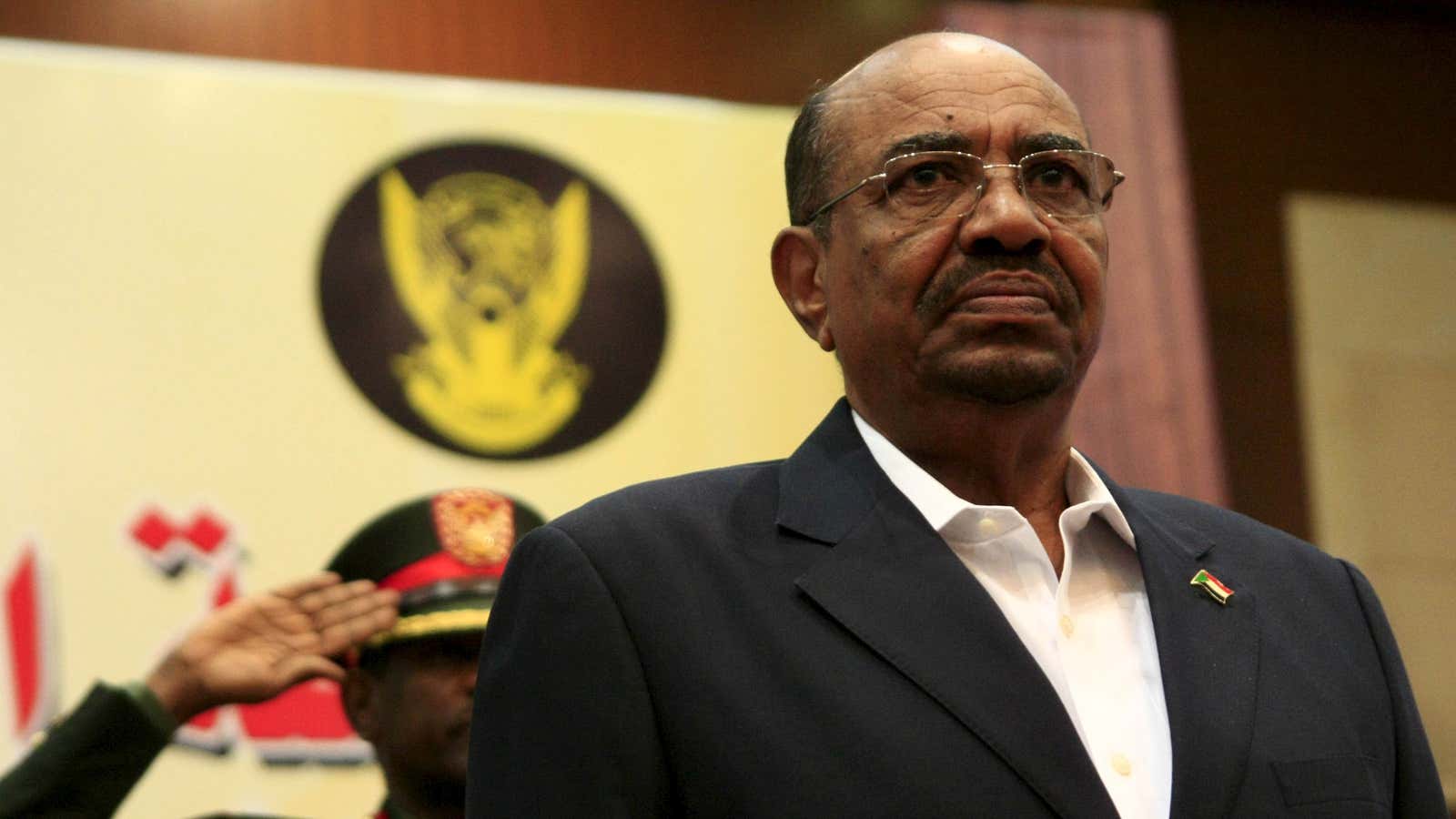The French bank Credit Agricole will pay US regulators $787 million for flagrant violations of international sanctions against Iran, Sudan, and other countries.
While it almost isn’t news anymore that a global bank got caught violating the law and will pay a giant fine to make up for it, we did want to take note of the truly innovative sanctions-avoidance measure employed by Credit Agricole, and award the bank the first-ever (annual?) Sudanese U-Turn Prize for Creative Financial Chicanery—designed in the same spirit as our Luxembourg tax-avoidance power rankings.
While there were plenty of red flags that the bank’s compliance team should have caught—notably, transactions that a Sudanese bank client labeled “DON’T MENTION SUDAN ON THIS PAYMENT ORDER”—one particular decision by the bank’s anti-money-laundering committee stands out as a truly impressive bit of chutzpah.
At issue are some 4,000 transactions the bank performed on behalf of Sudanese clients. These were forbidden due to sanctions put in place by the US first in 1997, when the country harbored Osama bin Laden; they were strengthened in 2006 following the government’s support for a genocide in the region of Darfur. Sudan’s leader since 1989, Omar al-Bashir, faces indictment for genocide in the International Criminal Court and was recently threatened with arrest in South Africa this before fleeing.
To evade sanctions against Sudan, Credit Agricole’s anti-money-laundering committee instructed staff members that they could perform banned transactions by using the “Sudanese U-turn exception.” Under this rule, strictly commercial transactions originating in Sudan could be completed in the US by dint of simply stripping identifying information from wire transfers between the bank’s Geneva and New York offices. Only, the exception was apparently self-granted, and entirely imaginary, if you believe the regulators at the New York State Department of Financial Services, who had this to say in a news release announcing the fines:
In reality, no U.S. law or regulation ever permitted an exception to the embargo on U.S. dollar transactions with sanctioned Sudanese parties by use of a two-stepped non-transparent “Sudanese U-turn exception.” (Emphasis theirs.)
Banks hiding critical information from money laundering watchdogs isn’t anything new—just check out this Commerzbank e-mail unearthed in a bout of prosecutions earlier this year:
If for whatever reason CB New York inquires why our turnover has increase[d] so dramatically, under no circumstances may anyone mention that there is a connection to the clearing of Iranian banks!!!!!!!!!!!!!.
But rarely does one see a bank create an exception to sanctions against a state that supports terror, give the exemption a funny name, and instruct staff in its usage. That’s a level of dedication to breaking the law that many institutions might reach for but just don’t achieve.




